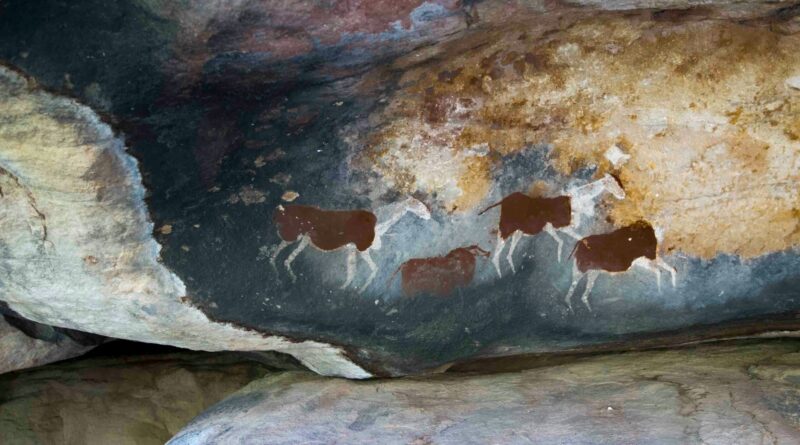Roots to Routes: Community Resilience through Ancestral Knowledge
Roots to Routes: Community Resilience through Ancestral Knowledge
Sheng-Hsiang Lance Peng
In a world where progress and innovation are often prioritised, I highlight the need to reconnect with the past, drawing on the wisdom passed down through generations. Mnemohistory, which focuses on how societies remember and reinterpret their history, shows that communities don’t just preserve events but also pass on cultural practices, stories, and shared experiences that shape their identities, and by tracing developmental paths through this historical knowledge, we can see how communities use their past to deal with present challenges and plan for the future. This approach goes beyond written records, exploring how the act of remembering and reimagining the past connects with shaping the future, with ancestral knowledge serving as a key resource in strengthening community resilience.
—Mnemohistory shows that communities don’t just preserve events but also pass on cultural practices, stories, and shared experiences that shape their identities—
Across the globe, the power of information—especially the historical knowledge passed down through generations—plays a critical role in fostering resilience and guiding development, a concept that is central to mnemohistory. For example, the Inuit people of the Arctic have long relied on oral traditions to transmit vital information about the land, sea, and ice, which is crucial for survival in their harsh environment, and these stories, encoded with knowledge passed down through generations, offer not just practical survival guidance but also a framework for adapting to modern issues such as climate change. In this context, mnemohistory reveals how this ancestral information is continuously reinterpreted and applied, showing how the past is not just remembered but actively used to guide the future, and the Inuit’s engagement with their environmental knowledge through storytelling underscores the power of information to shape decisions and strengthen resilience in the face of environmental shifts. Similarly, Indigenous Australian communities maintain songlines—oral histories that map out landscapes, survival knowledge, and spiritual connections, and these songlines are not static; they are continuously engaged with and updated as communities interact with the land and its changing features. Mnemohistory reveals how this ancestral knowledge is a relic of the past and a living, evolving source of information that continues to inform community practices today, and by referencing the songlines, Indigenous Australians navigate their physical and social landscapes, demonstrating how historical information embedded in cultural practices serves as a dynamic tool for resilience. This continuous interaction between past knowledge and present application exemplifies how mnemohistory allows us to understand the ongoing power of information in shaping both cultural identity and adaptive strategies for the future.
 In Africa, the transmission of traditional knowledge about farming and ecological stewardship has been integral to community resilience, particularly in rural areas. For example, in parts of West Africa, farmers rely on indigenous agroecological information that has been passed down over generations, and this knowledge, in local practices, helps farmers predict weather patterns, manage water resources, and maintain biodiversity, crucial for adapting to changing climatic conditions. Mnemohistory helps us understand that these practices are historical artefacts and also living, evolving bodies of knowledge that continue to guide and inform agricultural strategies today. By interpreting how these practices are adapted and applied in the modern context, we see how the power of historical information can actively shape sustainable development, and communities use this information to respond to current issues such as food insecurity and climate change, demonstrating the ongoing relevance of ancestral knowledge and the interpretive role mnemohistory plays in understanding how historical information can empower contemporary resilience. Similarly, in Latin America, particularly in Peru and Bolivia, the power of ancestral information has been central to the resurgence of indigenous movements advocating for land rights and environmental justice. The Quechua people, who have lived in the Andean region for centuries, possess a wealth of knowledge about high-altitude ecosystems and sustainable farming practices, and this information, passed down orally through generations, forms the basis for traditional methods such as terracing and water management, which are essential for sustaining agriculture in the face of modern environmental pressures. Through mnemohistory, we interpret how this ancestral knowledge is not simply a record of the past but an evolving, actionable body of information that communities draw upon to challenge modern development projects threatening their land, and the Quechua’s ability to reinterpret and apply this historical knowledge to contemporary struggles demonstrates the power of information in shaping both cultural identity and environmental sustainability, offering a blueprint for navigating the future through the lens of the past. These examples demonstrate that mnemohistory is about remembering the past and understanding how the power of information—whether through oral traditions, agricultural knowledge, or cultural practices—continues to inform and shape present-day decisions. By examining how communities engage with and reinterpret historical information, we see that ancestral knowledge is not fixed in place; it is an ever-changing resource that shapes resilience, sustainability, and justice in the present and future, and through the lens of mnemohistory, we understand that the flow of information across generations is a record of history and also a powerful tool for adapting to and navigating modern challenges.
In Africa, the transmission of traditional knowledge about farming and ecological stewardship has been integral to community resilience, particularly in rural areas. For example, in parts of West Africa, farmers rely on indigenous agroecological information that has been passed down over generations, and this knowledge, in local practices, helps farmers predict weather patterns, manage water resources, and maintain biodiversity, crucial for adapting to changing climatic conditions. Mnemohistory helps us understand that these practices are historical artefacts and also living, evolving bodies of knowledge that continue to guide and inform agricultural strategies today. By interpreting how these practices are adapted and applied in the modern context, we see how the power of historical information can actively shape sustainable development, and communities use this information to respond to current issues such as food insecurity and climate change, demonstrating the ongoing relevance of ancestral knowledge and the interpretive role mnemohistory plays in understanding how historical information can empower contemporary resilience. Similarly, in Latin America, particularly in Peru and Bolivia, the power of ancestral information has been central to the resurgence of indigenous movements advocating for land rights and environmental justice. The Quechua people, who have lived in the Andean region for centuries, possess a wealth of knowledge about high-altitude ecosystems and sustainable farming practices, and this information, passed down orally through generations, forms the basis for traditional methods such as terracing and water management, which are essential for sustaining agriculture in the face of modern environmental pressures. Through mnemohistory, we interpret how this ancestral knowledge is not simply a record of the past but an evolving, actionable body of information that communities draw upon to challenge modern development projects threatening their land, and the Quechua’s ability to reinterpret and apply this historical knowledge to contemporary struggles demonstrates the power of information in shaping both cultural identity and environmental sustainability, offering a blueprint for navigating the future through the lens of the past. These examples demonstrate that mnemohistory is about remembering the past and understanding how the power of information—whether through oral traditions, agricultural knowledge, or cultural practices—continues to inform and shape present-day decisions. By examining how communities engage with and reinterpret historical information, we see that ancestral knowledge is not fixed in place; it is an ever-changing resource that shapes resilience, sustainability, and justice in the present and future, and through the lens of mnemohistory, we understand that the flow of information across generations is a record of history and also a powerful tool for adapting to and navigating modern challenges.
By revisiting and reinterpreting the historical information in cultural practices, stories, and ecological knowledge, communities engage in memory work that shapes their identity and decision-making processes. This continuous process aligns with the ideas of theorists like Maurice Halbwachs, who emphasised the concept of collective memory—the way in which groups retain and reinterpret the past to maintain social cohesion and resilience. Mnemohistory’s focus on the temporal dimensions of memory, as explored by thinkers like Pierre Nora, reveals that these past narratives are actively reimagined and reconstructed to address current challenges, and through the lens of Nora’s lieux de mémoire (sites of memory), we understand that historical information is situated within specific cultural and social contexts, serving as touchstones for future actions. This dynamic relationship between past and present underscores that information is not a passive record but a living memory that shapes collective action and resilience, and ‘roots to routes’ captures the essence of how ancestral knowledge—rooted in cultural memory, as articulated by Halbwachs—serves as a vital tool for navigating contemporary issues and building sustainable futures. Through mnemohistory, we understand that the power of information is about preserving the past and is also about mobilising memory, in the way that Svetlana Boym describes as ‘restorative nostalgia’, to inform, inspire, and create routes toward a more resilient and just future.
Cite this article in APA as: Peng, S-H. L. Roots to routes: Community resilience through ancestral knowledge. (2025, January 23). Information Matters, Vol. 5, Issue 1. https://informationmatters.org/2025/01/roots-to-routes-community-resilience-through-ancestral-knowledge/
Author
-
Dr Peng is a Cornwall-based researcher (Falmouth/Exeter). His research explores a phantasmagoria of marginalised experiences through eerie and unsettling lenses including hauntology (Derrida), monster culture (Cohen) and mnemohistory (Assmann) to reflect on the cultural and social conditions shaping them.
View all posts





